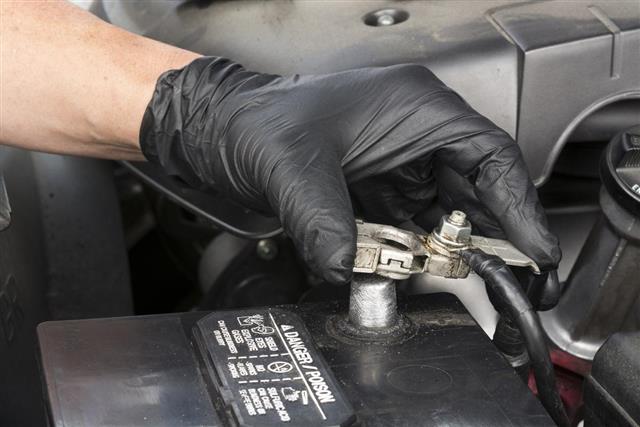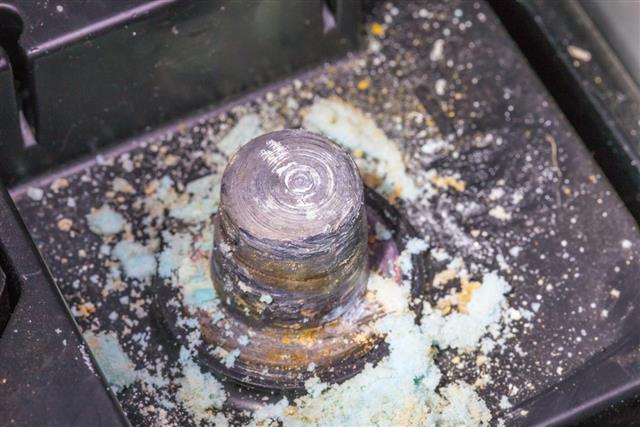
Corrosion is a problem that can shorten the life of any car battery. That’s why, it is important that you know how to stop it and undertake measures to prevent it. In this article, I discuss the symptoms, reasons, and preventive measures that can take care of this problem.
A car battery is the electric energy storage and supply system. A non-working one can cripple the working of a car. One of the reasons behind a dead or low performance battery can be corrosion. Knowing how to prevent it, is an essential part of its maintenance. Here, I analyze the causes behind the corrosion and share some simple tips on preventing them from happening.
You are in a hurry to get to your office and you run to your car. You get seated, put in the key, hit ignition and nothing. The car doesn’t start. You open the hood to check the battery and notice grimy deposits on it that cover the terminal. Yes, that’s battery terminal corrosion for you. It is a silent killer.
To understand the causes of corrosion, one needs to know a bit about the structure of a car battery. Every car battery is made up of a series of electrochemical cells that consist of lead, as well as lead oxide plates, dipped in sulfuric acid, diluted with water. That is why, they are called lead-acid batteries. The reversible electrochemical reactions that occur in the battery, enable storing and discharge of electrical energy, that powers the vehicle.
What Causes Battery Terminal Corrosion?
The major reason is the sulfuric acid that exists inside them. Each of the lead-acid cells in the car battery is sealed from above. Corrosion can happen due to overflow of sulfuric acid onto their surface. Another reason can be a buildup of moisture, which can also cause corrosion.
The metal terminals get corroded and covered with compounds formed from corrosion. This increases the resistance of terminals, leading to a low performance battery. Progressive deposition of corrosive material, can have a drastic effect on its output, eventually leading to a dead battery, due to low conduction. That is why, it’s essential that one learns about battery cleaning and prevention of corrosion.
How to Stop Corrosion
All the various ways in which you can prevent corrosion, can be categorized into two fundamental categories. One is preventive maintenance and the others are cleanup jobs that can prevent further damage. Let me discuss both ways here.
A word about safety before we go ahead. Make sure that you do not touch the corrosive material with your bare skin, as it can be harmful. While performing the job, wear safety glasses and gloves.
Disconnect the negative terminal of the car battery, followed by the positive. First, let us have a look at the way you can clean up corrosion that has already happened. All you need is some clean water, baking soda, a wire brush, petroleum jelly, and rough pieces of cloth. Remove the casing and make it soak in a solution of warm water and baking soda.
Then, using a wire brush or a wet cloth, you can clean the corrosive buildup. Next, wash off the rest of the corrosion with baking soda solution. The acid and baking soda will react to produce salt and water. Make sure that you get it off the casing. Clean the terminals and battery casing dry after the cleaning job.
Now, let us see a preventive measure that can stop this problem from cropping up. Apply petroleum jelly over the terminals or spray them with a silicon spray/automotive paint. Let it dry for sometime. This can effectively prevent corrosion, while ensuring that the conduction through them is unhindered. You can connect the terminals of the battery back again, after putting back the casing. Your car battery is as good as new again. Preventive maintenance is your bulwark against every kind of car problem that crops up.

